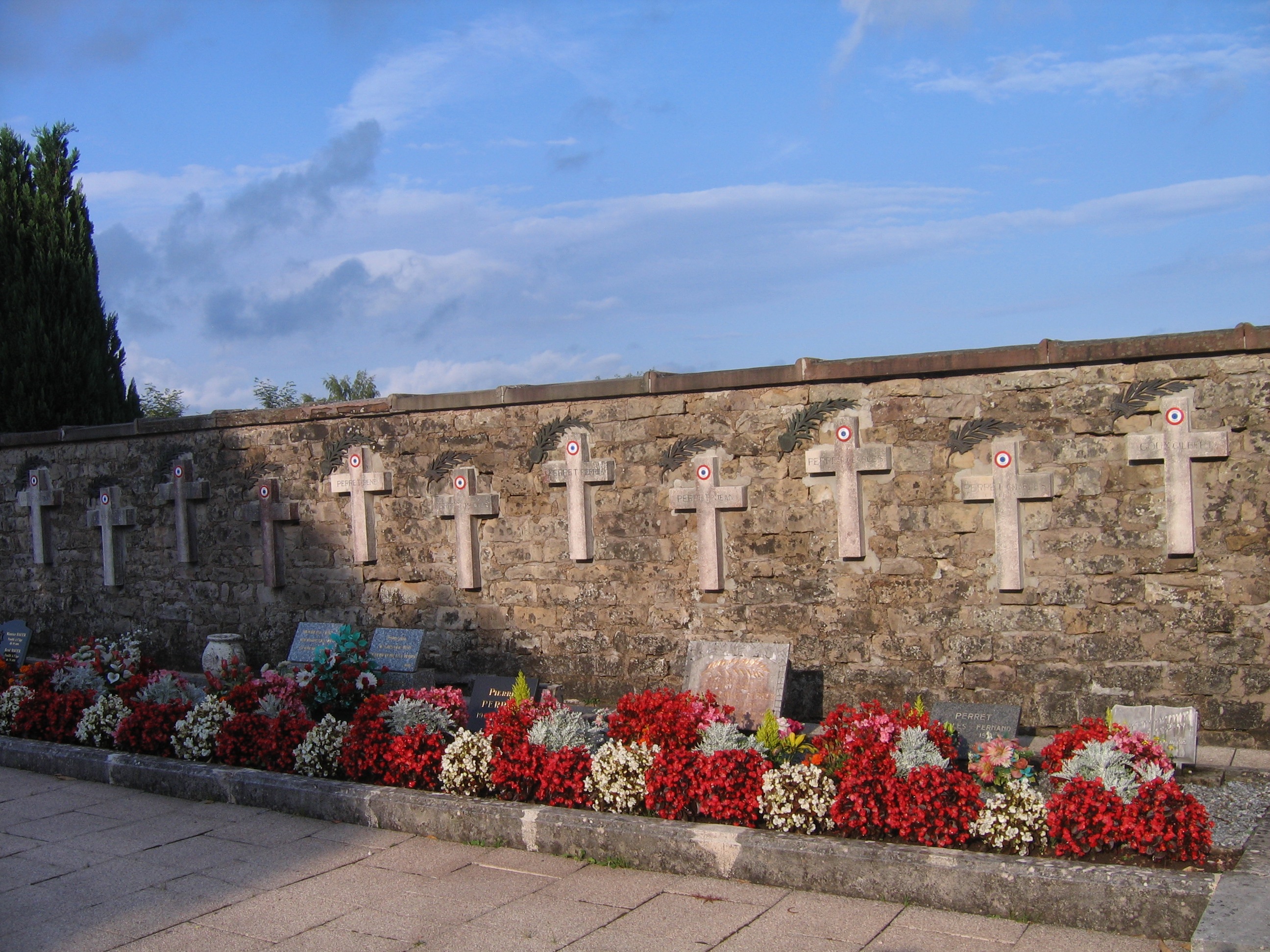"Germans gone - war over!"
At last, the liberating Allied troops had reached Etobon. They knew nothing about the massacre, the hidden Commonwealth soldiers or the sufferings of the Etobonais. Finally Jarko and the others who had sheltered in the woods could come out and celebrate.
November 18, 1944 (Continued)
When the seven German soldiers caught at the Goutte were taken to the village they planned to annihilate, the cripple Robert Chevalley beat them with his crutches. An old man from the Pied des Côtes, the usually gentle Charles Goux, beat them with his fists: “Here, you bastard! Oh, you’ve stolen from me, to take munitions to the front … Not you? Too bad. Here, you bastard!” I intervened each time, because you can’t hit soldiers who’ve put their hands up… For all that, after what they’d done, their punishment was light!
Among the seven Germans, there were four SS. That fact proved that they were going to burn the village, and they were shot the next day near the cemetery at Belverne.
A miracle had saved Etobon. After God, we owe it all to Lucie Goux. Without her, where would we be? In the next world or in a concentration camp. And the village a pile of cinders.
This reminds me that, in January 1871, the Bourbaki army was pressing the Werder army, of which one part was stationed at Etobon. Like this morning, the French were coming from Belverne and the Germans were withdrawing to Chenebier. And it was my grandfather, Jacques Perret, who went halfway to Belverne to say to the French: “Come on! They’ve left …” Sixty three years ago. Only, in those days, we didn’t know about mines!
An unexpected thing happened at about eight o’clock: we received another round of shells form the Franco-American side. At cousin Charles’, a dictionary was almost run through by one. Some roofs were pierced. A man got out of one of the tanks that arrived about noon. Seeing the damage, he asked, “What time was the shelling?” “At eight.” “Well, it was me who fired them from Roye.” He should have done a better job. Fortunately, apart from some broken tiles, the only injury was to the leg of one of Aunt Comte's cows in a stable.
Around eleven o’clock, putting his hands around his mouth like a megaphone, Charles yelled, “Jarko, come on out! Germans gone – war over!”
It was a sensational entrance into the village: Jarko, with no shoes on, in his socks in the mud. Like a crazy man. He waved his arms, spoke in Serbian. All we understood was, “Tito, Tito!” Then he wanted to shake the hand of the commander of the FFI and then he finally calmed down. We gave him a good meal with mashed potatoes, salad and roast brought from my storehouse.
I wanted to have the church bells rung, but an officer said it would be safer to wait until the boches were out of cannon range. Now we can get started. A little before noon, how our beautiful bells rang!

 Katherine Douglass
Katherine Douglass